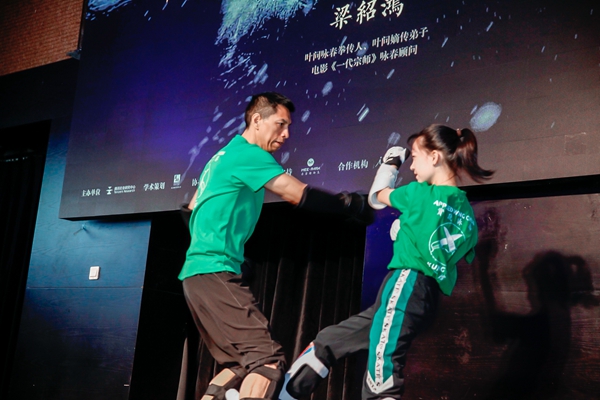Kung fu master wings his way to success


When Duncan Leung Shiu-hung takes to the stage to deliver a speech in Beijing to share his decades of experience promoting Wing Chun, a southern Chinese form of kung fu, the man from Hong Kong says: "I'm a practitioner of martial arts, not someone good at talking."
As a keynote speaker invited by streaming platform Tencent to a recent forum on the contemporary significance of kung fu, Leung has a resume that would make the younger generations envious. As a childhood friend of Bruce Lee, Leung, at age 13, was introduced to Ip Man, the Wing Chun master. That meeting followed years of intense training and Ip taught him to realize the importance of adopting kung fu as a practical skill, rather than as a means to show off.
"Ip told me: 'If you cannot use kung fu in battle, why bother learning it?'" says Leung, now 77. "During social upheaval, kung fu can help us protect ourselves. But in the current era of peace and stability, we can use kung fu to build up our strength. It was never meant to be 'performed' in the first place."
Nevertheless, thanks to Lee's films, kung fu gained a global following during the 1960s. For most Americans, kung fu remained a mystery, and they had no idea where to learn it.
Leung, who moved to New York in the early 1970s, then decided to open a martial arts school in the city, which was soon crowded with visitors.
"People kept coming to the school because they wanted to learn more about Bruce Lee, and not because they were attracted to Wing Chun per se," he says with a smile.
Still, Leung considered cross-cultural communication as essential to spreading a deeper understanding of kung fu, rather than relying on the way it was depicted on the screen.
"Martial arts are a key cultural root for us Chinese," he says. "It's also an important intangible property in Chinese culture. We have to preserve it and ensure it's recognized around the world.
"Popularizing kung fu in other countries can't be done by one person only; every martial artist needs to contribute."
Sometimes it needs an opportunity to arise, just like they do in Bruce Lee's movies. Leung's opportunity finally arrived when a scuffle broke out in a restaurant where he was dining. He narrowly missed being shot twice, yet quelled the tense situation with his bare hands in front of two police officers. News of this encounter swept New York like wildfire. He was even invited to train police officers in the art of Wing Chun. The course later expanded to special force units of the US Navy, and earned him great acclaim.







































